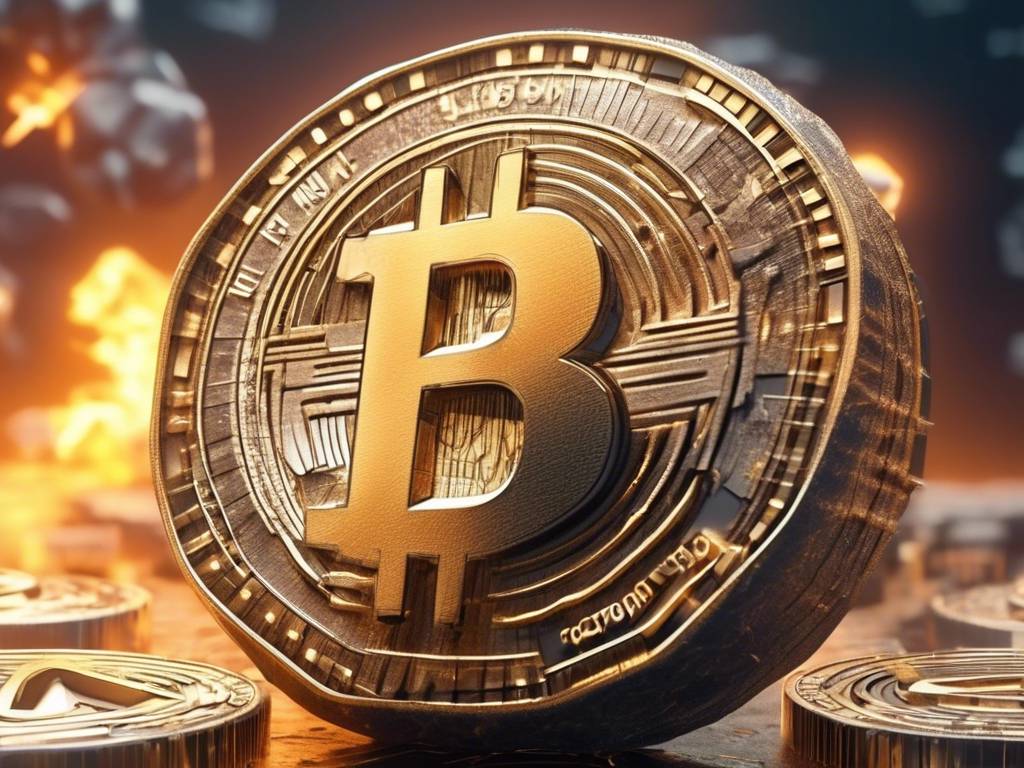The Rise and Fall of Financial Nihilism in the Age of Globalism 🌐
Have you noticed a growing belief that the only way to achieve financial success is by taking massive risks with the little money you have? This phenomenon, known as Financial Nihilism, is gaining traction in the world of cryptocurrency and beyond. Discover the origins of this belief, its impact on society, and how you can navigate through these challenging times. Let’s dive into the complexities of globalism, financial disparities, and the future of wealth accumulation.
The Disconnect Between Price and Value 🏠
Financial Nihilism, as defined by entrepreneur Dimitri Kofinas, highlights the disparity between the cost and actual worth of assets, such as housing and stocks. Globalism, an economic policy that favors global operations over national interests, has fueled this disconnect over the past few decades. As outsourcing and cost-cutting measures became prevalent, the gap between asset prices and economic fundamentals widened, leading to a skewed perception of value. Explore how this phenomenon has reshaped wealth distribution and investment strategies.
- Financial Nihilism versus Traditional Investment Beliefs
- Understanding the disconnect between asset prices and intrinsic value
- Impact of globalism on financial markets and wealth accumulation
- The Rise of Speculative Investments in Housing and Crypto
- Exploring viral posts highlighting overpriced properties and meme coins
- Government interventions and the perpetuation of asset bubbles
The Populist Backlash and Financial Disparities 💰
Travis King, CIO of ikigai Asset Management, sheds light on the intersection between Financial Nihilism and populist sentiments. As powerful entities prioritize their interests over the average person, income inequality and unaffordable housing become glaring issues. The monetary response to the pandemic exacerbated these disparities, pushing more individuals towards risky investments and speculative behavior. Dive into the implications of populist movements and wealth concentration on the global economy.
- Financial Disparities and the Economic Effects of the Pandemic
- Analysis of housing affordability and income inequality trends
- The role of fiscal stimulus in wealth distribution and asset appreciation
- The Millennial Challenge: Navigating a Distorted Financial Landscape
- Generational differences in asset ownership and wealth accumulation
- Strategies for managing financial risks and market uncertainties
Adapting to a Shifting Economic Paradigm 🔄
As globalism faces scrutiny and calls for economic nationalism grow louder, individuals must redefine their investment and career strategies to thrive in a changing landscape. Embracing the volatility of the crypto market, understanding the motivations of globalist investors, and possibly relocating to more resilient regions may offer a path to financial resilience. Explore the nuances of surviving and thriving in an era marked by financial nihilism and global economic disruptions.
- Strategies for Successful Navigation of Economic Transition
- Maximizing opportunities in speculative investments and asset classes
- Identifying potential regions for economic stability and growth prospects
- Future Outlook: From Globalist Agendas to Local Resilience
- Acknowledging the role of globalist institutions and their impact on policy decisions
- Crafting a personalized financial strategy in a rapidly changing economic environment
Hot Take: Embracing Change and Seizing Opportunities 🔥
Are you prepared to confront the challenges posed by financial nihilism and global economic uncertainties? By understanding the origins of these dynamics and adopting a proactive approach to financial planning, you can navigate through the complexities of globalism and emerge stronger on the other side. Embrace change, seize opportunities, and stay informed about the evolving financial landscape to secure your financial well-being in an ever-changing world.





 By
By
 By
By

 By
By
